
A Brief Reminder of What Was Said in the Past
The concept of "Westlesness" was the main theme of the Munich Security Conference (MSC) held five years ago on February 14-16, 2020. At that time, the conference organizers briefly explained the concept of "westlesness" as follows:
“Despite its widespread use as a shorthand for a community of mostly North American and European liberal democracies as well as a normative project, the ‘West’ is a concept that is not always easy to pin down. The ‘West’ has never been a monolithic concept but rather an amalgam of different traditions, the mix of which changed over time. Yet, for the past decades, the answer to the question what it was that kept the West together was straightforward: a commitment to liberal democracy and human rights, to a market-based economy, and to international cooperation in international institutions. Today, the meaning of the West is increasingly contested again. We are witnessing ‘the decay of ‘the West’ as a relatively cohesive geopolitical configuration … The contemporary ‘spiritual disunity of the West’ is due to the rise of an illiberal and nationalist camp within the Western world. For this increasingly vocal group, the West is not primarily a community bound by liberal-democratic values and open to everyone sharing these values. Rather, it is a community held together by ethnic, cultural, or religious criteria. Such an understanding of the West distinguishes itself from a liberal or ‘open’ understanding of the West. Proponents of this “closed” interpretation believe that the (white Christian) West today is threatened by ‘outsiders’ with different religious beliefs or cultural backgrounds. The proponents of this school of thought see Western societies as weak or even suicidal – undermining themselves by societal liberalization, the empowerment of women, and immigration. Their perception that the West is under attack paves the way for what they perceive as legitimate self-defense. In its moderate version, this school of thought calls for walls and borders, the rejection of refugees, or the opposition to political correctness and gender mainstreaming.“[1]
In our analysis published at that time on the subject, we explained that the 2020 MSC demonstrated the validity of the concept of "Constructive Eurasianism" that AVİM has been bringing to the agenda since 2017 and summarized our arguments in this respect as follows:
“As the Center For Eurasian Studies (AVİM), within the framework of our studies on Eurasia, we have been bringing to the agenda the concept of ‘Constructive Eurasianism.‘ In this context, the ‘Constructive Eurasianism‘ concept rejects the understanding based on the search for an alternative to the ‘West‘ and instead of creating new rivalries and antagonisms in Eurasia, proposes for the creation of new avenues for cooperation through which Turkey (and likewise other western countries) can position themselves properly in a changing world. While staunchly defending Turkey's further integration with and entrenched position in the West, we, at the same time, underline the importance of developing a new relationship with the East. There is no need to be so much distressed with losing the western hegemony in the world. Instead of trying to turn the clock back, we should proceed forward with creative thinking.“
In our recent article titled "Constructive Eurasianism: Revisiting Definitions", which we published at the beginning of this year on the subject of “Constructive Eurasianism“[2], we made further explanations about the main elements of this concept as follows:
“In conclusion, since its inception, the concept of, Constructive Eurasianism has made significant contribution to academic discourse and policy analysis by promoting a balanced geopolitical orientation for Türkiye. This approach not only redefines Türkiye's interactions on the global stage but also enhances its strategic autonomy by emphasizing stability and security. Through fostering connections with both Eastern and Western partners, it positions Türkiye as a pivotal nexus that bridges diverse civilizational spheres. In the coming period, instead of supporting and glorifying destabilization, conflict, war and hegemonic approaches, we should focus on bona fide cooperation, multifaceted and cooperative international relations strategy.In this context, it should be underlined that the concept of ‘Constructive Eurasianism‘ is not a utopian approach, but on the contrary, a realistic approach that correctly diagnoses the challenges in the Eurasian geography, proposes cooperation for peace, stability and tranquility, and emphasizes the importance of remembering the long-forgotten principle of the indivisibility of security. It is believed that it would be beneficial for those who created the principle of ‘indivisibility of security‘ 50 years ago to remember the importance of this principle for the West and the East, and therefore for the Eurasian geography.“[3]
2025 Munich Security Conference Shocked the Western World
The 61st Munich Security Conference (MSC) took place from February 14 to 16, 2025, The report prepared for the MSC bears the title "Multipolarization."[4] The report seeks answers to the following questions: Is the world really entering an era defined by multipolarity? What are the (potential) poles of such an order? How polarized are they? What are the implications of a multipolarized order? And how can the international community manage multipolarization? Report, as answers to these questions, asserts that the world is becoming ever more “multipolar” and world’s “multipolarization” is a fact.[5]
It is possible to say that the speech made by the U.S. Vice President J.D. Vance at the conference had an earthquake effect and deeply shook the Western World. He accused European leaders of suppressing free speech and censorship, including by referencing Germany’s far-right Alternative for Germany (AfD) party and declared that biggest security threat facing Europe was not Russia or China, but the threat from within.[6] He, among others, specifically mentioned election developments in Romania and stated the following:
“Now, I was struck that a former European commissioner went on television recently and sounded delighted that the Romanian government had just annulled an entire election. He warned that if things don’t go to plan, the very same thing could happen in Germany, too. Now, these cavalier statements are shocking to American ears. For years, we’ve been told that everything we fund, and support is in the name of our shared democratic values. Everything from our Ukraine policy to digital censorship is billed as a Defense of democracy, but when we see European courts cancelling elections and senior officials threatening to cancel others, we ought to ask whether we’re holding ourselves to an appropriately high standard. And I say “ourselves” because I fundamentally believe that we are on the same team. We must do more than talk about democratic values. We must live them.”[7]
As it may be recalled, as AVİM we also drew attention to the seriousness of the former EU official’s statement regarding the Romanian elections in our analysis dated January 24, 2025.[8]
BBC covered the US Vice President's speech, which had a seismic effect on the Western World and transatlantic ties, under the titles "JD Vance attacks Europe over free speech and migration" and "JD Vance's blast at Europe ignores Ukraine and defense agenda", and drew particular attention to Vance's statement that "the greatest threat facing the continent was not from Russia and China, but from within".[9] The Guardian newspaper’s Diplomatic Editor’s analysis of the issue is titled “JD Vance’s Munich speech laid bare the collapse of the transatlantic alliance.” The Diplomatic Editor explains the devastating effects of the speech as “The speech signaled that the pre-existing dispute between Europe and the US was no longer to do with the sharing of the military burdens, or the nature of the future security threat posed by Russia, but something more fundamental about society.” [10] While Le Monde reflects the speech by the title of "In Munich, JD Vance declares ideological war on Europe"[11], POLITICO advances the title of “JD Vance brings culture war to Europe."[12]
We can say that the widespread opinion in the Western press about the speech was that it had the effect of a bomb and damaged transatlantic relations. It should be noted that this opinion was reflected in a news-commentary by the PRC News Agency Xinhua, titled "U.S. VPs speech in Munich sparks European backlash, widening transatlantic rifts."[13]
How did MSC evaluate the results of the 2025 conference?
According to MSC webpage the MSC seeks to provide concise and analytical summaries of its most relevant events. Rather than providing a comprehensive overview of the entire event, they focus on key takeaways, highlight contentious or surprising points, and distil issues that merit further attention. They primarily capture the opinions and perspectives voiced by participants in the discussion and do not necessarily reflect the position of the MSC.[14] The debrief published by the MSC following the 2025 conference[15] reflects the results and main conclusions of the conference as key takeovers in the following way:
“Although it is unclear whether we are already living in a truly multipolar system, today’s world is characterized by “multipolarization.”
While the world today displays elements of uni-, bi-, multi-, or even nonpolarity, it is being shaped by a changing global distribution of power, with a larger number of actors having the ability to influence key global issues. But the world is also experiencing increasing polarization, both at the international level and within many countries’ domestic politics.
For many politicians and citizens around the globe, a more multipolar world holds significant promise. But increasing competition among the various “poles” and their order models is already impeding joint approaches to global crises and threats.
As few states still pursue foreign policies focused on the common good – and domestic divides are further complicating such attempts – it is far from clear how a process of depolarization that could set multipolarity on a positive track could be initiated.“[16]
The MSC debrief concludes that the Conference reflected many challenges associated with the recalibration of the transatlantic relationship and the emergence of a new international order shaped by multi-polarization.
As a final word, the MSC debrief strikingly emphasizes that “The old days are over, and a new era begins.“
Closing comments
AVİM, for years, has been highlighting the emerging shifts in global alignments and, in this regard, as outlined above, proposed and in years developed the concept of Constructive Eurasianism for Türkiye's foreign relations. Constructive Eurasianism advocates for Türkiye to balance its Western ties with Eastern opportunities. This geopolitical approach promotes regional cooperation across Eurasia. While it values stability and security not only in Europe but in the wider Eurasia, it strongly suggests strategic autonomy for Türkiye. This approach rejects anti-Westernism and recognizes the West's valuable contributions to global development without ignoring historical contexts or sacrificing strategic autonomy.
We believe that the recent developments we have briefly summarized above reflect the realistic and functional nature of Constructive Eurasianism. In this context, we would like to state that the MSC's assessment that "the old days are over, and a new era begins” is a valid but very late assessment and reminds us of the proverb "good morning after supper."
*Picture: Linked-in
[1] “Westlessness – The Munich Security Conference 2020,” Munich Security Conference, February 16, 2020, https://securityconference.org/en/news/full/westlessness-the-munich-security-conference-2020/.
[2] Mehmet Oğuzhan Tulun-Teoman Ertuğrul Tulun, “The Necessity of Constructive Eurasianism,” Center for Eurasian Studies (AVİM), Commentary No. 2017/51, DOI: 10.31219/osf.io/3xwrn, June 12, 2017, https://avim.org.tr/en/Yorum/THE-NECESSITY-OF-CONSTRUCTIVE-EURASIANISM
[3] Teoman Ertuğrul Tulun, "Constructive Eurasianism: Revisiting Definitions," Center for Eurasian Studies (AVİM), Commentary No: 2025/3, January 8, 2025, https://avim.org.tr/en/Yorum/CONSTRUCTIVE-EURASIANISM-REVISITING-DEFINITIONS
[4] Multipolarization Munich Security Report 2025 . February 2025. Editors Tobias Bunde Sophie Eisentraut Leonard Schütte . Managing Editor Natalie Knapp. https://securityconference.org/assets/02_Dokumente/01_Publikationen/2025/MSR_2025/Multipolarization_%E2%80%93_Munich_Security_Report_2025.pdf
[5] Multipolarization Munich Security Report 2025, p.9.
[6] Foreign Policy. The Speech That Stunned Europe. Read U.S. Vice President J.D. Vance’s remarks at the Munich Security Conference. By Christina Lu, an energy and environment reporter at Foreign Policy. February 18, 2025. https://foreignpolicy.com/2025/02/18/vance-speech-munich-full-text-read-transcript-europe/
[7] Foreign Policy. The Speech That Stunned Europe,
[8] Teoman Ertuğrul Tulun. Shifting Paradigms: Election Interference And Democratic Integrity In The Osce Region, Analysis No : 2025 / 1. 24.01.2025. https://avim.org.tr/en/Analiz/SHIFTING-PARADIGMS-ELECTION-INTERFERENCE-AND-DEMOCRATIC-INTEGRITY-IN-THE-OSCE-REGION
[9] BBC. „JD Vance attacks Europe over free speech and migration“ and“ JD Vance attacks Europe over free speech and migration“. By Emily Atkinson. 15/02/2025. https://www.bbc.com/news/articles/ceve3wl21x1o , https://www.bbc.com/news/articles/c4g9nmeyzkjo
[10] The Guardian. JD Vance’s Munich speech laid bare the collapse of the transatlantic alliance. By Patrick Wintour. https://www.theguardian.com/world/2025/feb/15/jd-vance-munich-speech-laid-bare-collapse-transatlantic-alliance-us-europe
[11] Le Monde. In Munich, JD Vance declares ideological war on Europe. By Elsa Conesa. 15/02/2025. https://www.lemonde.fr/en/international/article/2025/02/15/in-munich-jd-vance-declares-ideological-war-on-europe_6738189_4.html
[12] POLTICO. JD Vance brings culture war to Europe. By Suzanne Lynch. 15/02//2025. https://www.politico.com/newsletters/global-playbook/2025/02/15/jd-vance-brings-culture-war-to-europe-00204492
[13] Xinhua. U.S. VP's speech in Munich sparks European backlash, widening transatlantic rifts. 16/02/2025. https://english.news.cn/20250216/43de3bf82a6c4b94875c41d8aff0395b/c.html
[15] Tobias Bunde and Sophie Eisentraut, “Westlessness Reloaded? Key Takeaways From the Munich Security Conference 2025,” Munich: Munich Security Conference, Munich Security Debrief 1, February 2025, https://doi.org/10.47342/LFJW7131. DOI: 10.47342/LFJW7131 https://doi.org/10.47342/LFJW7131 .
© 2009-2025 Center for Eurasian Studies (AVİM) All Rights Reserved
No comments yet.
-
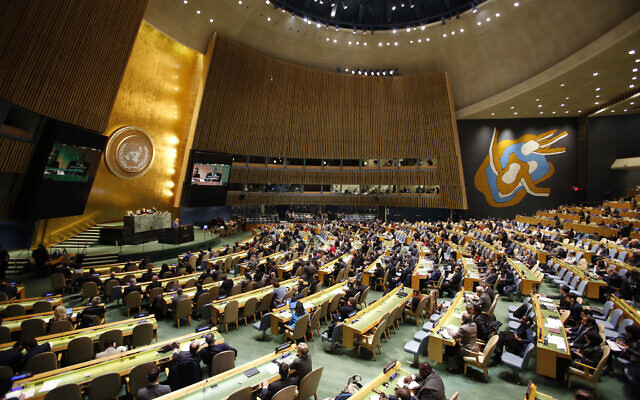 THE UN GENERAL ASSEMBLY REJECTED AND CONDEMNED HOLOCAUST DENIAL AND RECALLED THE INTERNATIONAL LEGAL BASIS OF ITS REJECTION
THE UN GENERAL ASSEMBLY REJECTED AND CONDEMNED HOLOCAUST DENIAL AND RECALLED THE INTERNATIONAL LEGAL BASIS OF ITS REJECTION
Teoman Ertuğrul TULUN 04.02.2022 -
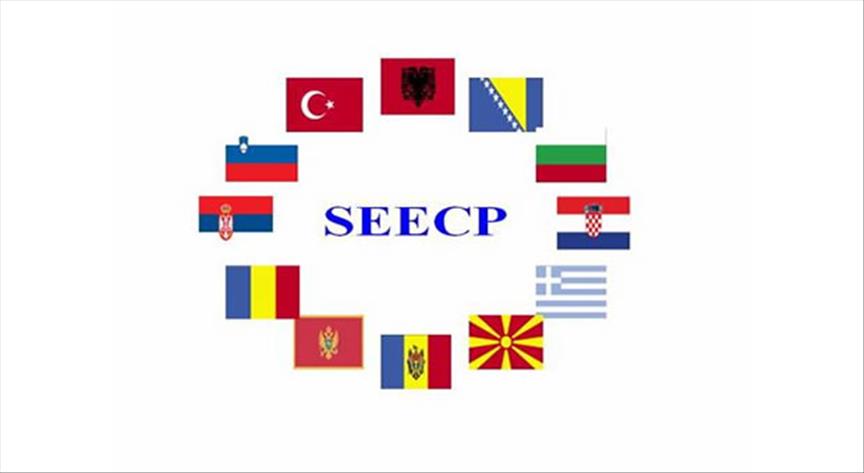 TURKEY HAS ASSUMED THE CHAIRMANSHIP-IN-OFFICE OF THE SOUTH EAST EUROPE COOPERATION PROCESS (SEECP)
TURKEY HAS ASSUMED THE CHAIRMANSHIP-IN-OFFICE OF THE SOUTH EAST EUROPE COOPERATION PROCESS (SEECP)
Teoman Ertuğrul TULUN 17.07.2020 -
 TURKISH MIGRANTS AND THEIR CONTRIBUTION TO TECHNOLOGICAL DEVELOPMENT
TURKISH MIGRANTS AND THEIR CONTRIBUTION TO TECHNOLOGICAL DEVELOPMENT
Teoman Ertuğrul TULUN 24.03.2021 -
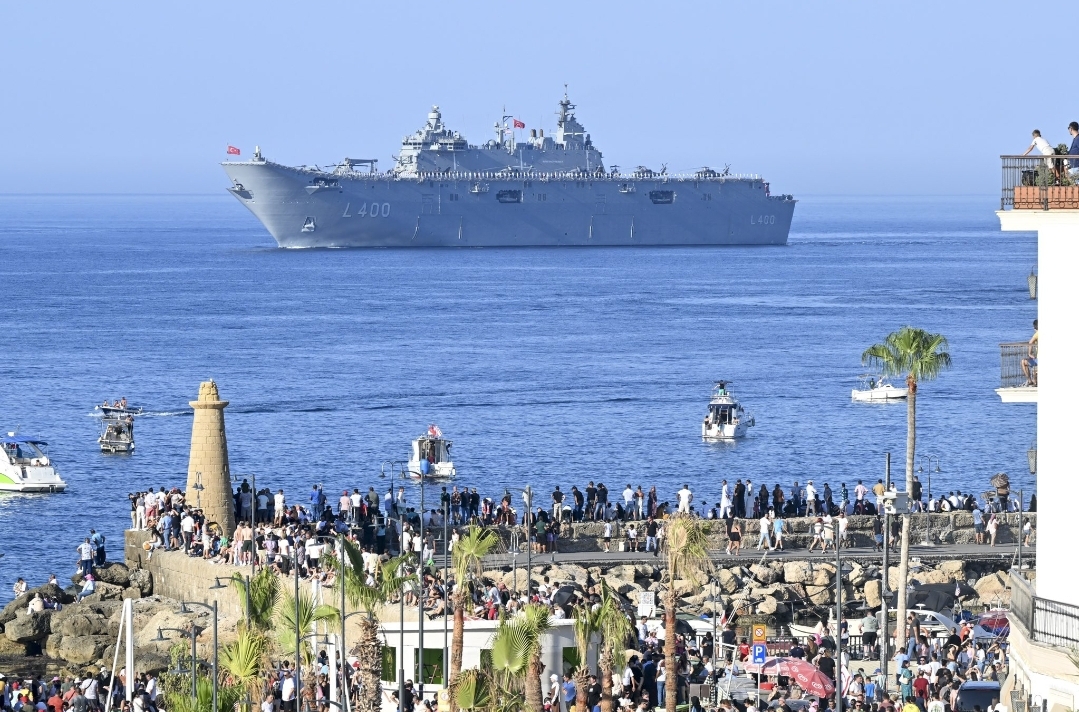 50TH ANNIVERSARY OF THE CYPRUS PEACE OPERATION: WHAT PROPOSAL DID THE GREEK SIDE MAKE TO RAUF DENKTAŞ IMMEDIATELY AFTER THE OPERATION?
50TH ANNIVERSARY OF THE CYPRUS PEACE OPERATION: WHAT PROPOSAL DID THE GREEK SIDE MAKE TO RAUF DENKTAŞ IMMEDIATELY AFTER THE OPERATION?
Teoman Ertuğrul TULUN 25.07.2024 -
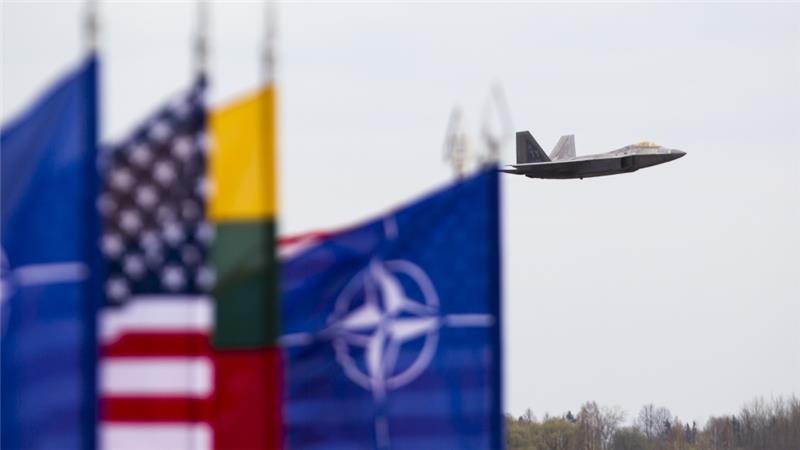 FRONT LINE AND POWDER KEG OF THE NEW COLD WAR: THE BALTIC SEA REGION, BALTIC COUNTRIES, AND KALININGRAD
FRONT LINE AND POWDER KEG OF THE NEW COLD WAR: THE BALTIC SEA REGION, BALTIC COUNTRIES, AND KALININGRAD
Teoman Ertuğrul TULUN 21.02.2017
-
 RELATIONS OF US SENATORS WITH FOREIGN LOBBIES: THE CASE OF MENENDEZ
RELATIONS OF US SENATORS WITH FOREIGN LOBBIES: THE CASE OF MENENDEZ
Teoman Ertuğrul TULUN - Tuğçe TECİMER 17.09.2024 -
 THE NEVER-ENDING DECLARATIONS THAT EXCUSE TERRORIST SASSOUNIAN
THE NEVER-ENDING DECLARATIONS THAT EXCUSE TERRORIST SASSOUNIAN
Hazel ÇAĞAN ELBİR 05.04.2021 -
 FRONT LINE AND POWDER KEG OF THE NEW COLD WAR: THE BALTIC SEA REGION, BALTIC COUNTRIES, AND KALININGRAD
FRONT LINE AND POWDER KEG OF THE NEW COLD WAR: THE BALTIC SEA REGION, BALTIC COUNTRIES, AND KALININGRAD
Teoman Ertuğrul TULUN 21.02.2017 -
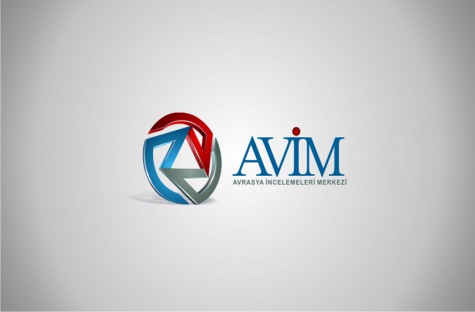 THE SPANISH LEGISLATION ON GENOCIDE DENIAL: DEBATES AND THE CURRENT LEGAL SITUATION
THE SPANISH LEGISLATION ON GENOCIDE DENIAL: DEBATES AND THE CURRENT LEGAL SITUATION
Miguel MORENO - Turgut Kerem TUNCEL 04.05.2015 -
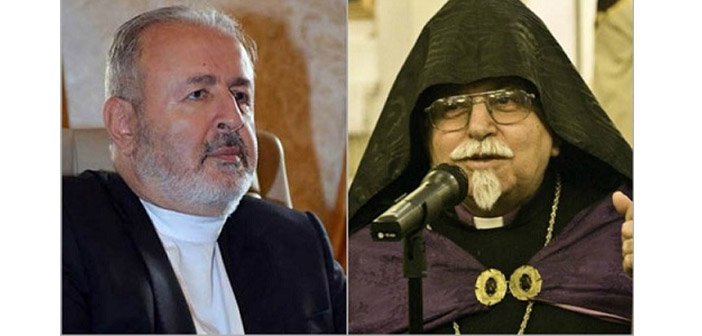 THE ELECTION PROCESS OF THE ARMENIAN PATRIARCH OF ISTANBUL HAS GAINED MOMENTUM
THE ELECTION PROCESS OF THE ARMENIAN PATRIARCH OF ISTANBUL HAS GAINED MOMENTUM
Mehmet Oğuzhan TULUN 29.05.2017
-
25.01.2016
THE ARMENIAN QUESTION - BASIC KNOWLEDGE AND DOCUMENTATION -
12.06.2024
THE TRUTH WILL OUT -
27.03.2023
RADİKAL ERMENİ UNSURLARCA GERÇEKLEŞTİRİLEN MEZALİMLER VE VANDALİZM -
17.03.2023
PATRIOTISM PERVERTED -
23.02.2023
MEN ARE LIKE THAT -
03.02.2023
BAKÜ-TİFLİS-CEYHAN BORU HATTININ YAŞANAN TARİHİ -
16.12.2022
INTERNATIONAL SCHOLARS ON THE EVENTS OF 1915 -
07.12.2022
FAKE PHOTOS AND THE ARMENIAN PROPAGANDA -
07.12.2022
ERMENİ PROPAGANDASI VE SAHTE RESİMLER -
01.01.2022
A Letter From Japan - Strategically Mum: The Silence of the Armenians -
01.01.2022
Japonya'dan Bir Mektup - Stratejik Suskunluk: Ermenilerin Sessizliği -
03.06.2020
Anastas Mikoyan: Confessions of an Armenian Bolshevik -
08.04.2020
Sovyet Sonrası Ukrayna’da Devlet, Toplum ve Siyaset - Değişen Dinamikler, Dönüşen Kimlikler -
12.06.2018
Ermeni Sorunuyla İlgili İngiliz Belgeleri (1912-1923) - British Documents on Armenian Question (1912-1923) -
02.12.2016
Turkish-Russian Academics: A Historical Study on the Caucasus -
01.07.2016
Gürcistan'daki Müslüman Topluluklar: Azınlık Hakları, Kimlik, Siyaset -
10.03.2016
Armenian Diaspora: Diaspora, State and the Imagination of the Republic of Armenia -
24.01.2016
ERMENİ SORUNU - TEMEL BİLGİ VE BELGELER (2. BASKI)
-
AVİM Conference Hall 24.01.2023
CONFERENCE TITLED “HUNGARY’S PERSPECTIVES ON THE TURKIC WORLD"









